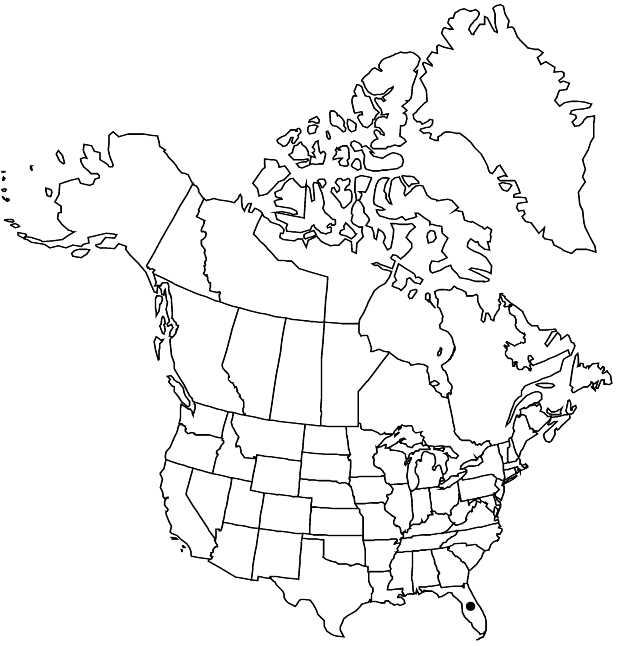Difference between revisions of "Ardisia elliptica"
Nov. Gen. Pl., 119. 1798 ,.
FNA>Volume Importer |
FNA>Volume Importer |
||
| Line 48: | Line 48: | ||
|publication year= | |publication year= | ||
|special status= | |special status= | ||
| − | |source xml=https://jpend@bitbucket.org/aafc-mbb/fna-data-curation.git/src/ | + | |source xml=https://jpend@bitbucket.org/aafc-mbb/fna-data-curation.git/src/f6b125a955440c0872999024f038d74684f65921/coarse_grained_fna_xml/V8/V8_639.xml |
|genus=Ardisia | |genus=Ardisia | ||
|species=Ardisia elliptica | |species=Ardisia elliptica | ||
Revision as of 20:30, 24 September 2019
Shrubs, not stoloniferous, 1–2 m; branchlets conspicuously black punctate-lineate, glabrous. Leaves: petiole 5–10 mm, glabrous; blade oblanceolate or obovate, 6–12(–16) × 3–5(–7) cm, margins entire, revolute, (without vascularized nodules), apex obtuse or acute, surfaces glabrous. Inflorescences lateral or subterminal, on basally thickened lateral branches, subumbels or umbels, 5+-flowered. Pedicels erect, ca. 1–2 cm, glabrous. Flowers: sepals 5, broadly ovate, ca. 1 mm, margins subentire, (minutely ciliate), apex rounded, densely black-punctate, glabrous; petals 5, pink or white, broadly ovate, 6–8 mm, margins entire, (hyaline, scarious), apex long-acuminate, densely punctate, glabrous; stamens subequaling petals; anthers linear-lanceolate, transversely septate-lobed, apex apiculate, punctate abaxially; ovary pellucid-punctate, glabrous; ovules 5+, multiseriate. Drupes red or purplish black, subglobose, ca. 8 mm diam., minutely punctate. 2n = 48.
Phenology: Flowering Feb–Apr; fruiting Sep–Nov.
Habitat: Roadsides, scrub, near villages, edges of fields, along coasts
Elevation: 0-20 m
Distribution

Fla., pantropical.
Discussion
The names Ardisia solanacea Roxburgh and A. polycephala Wight have been misapplied to specimens of A. elliptica, which escapes from cultivation and is invasive.
Selected References
None.